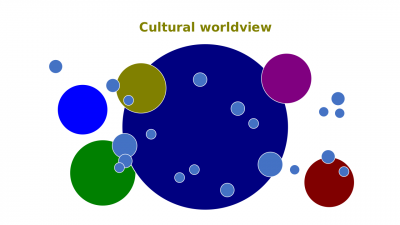Difference between revisions of "Parochialism"
| Line 5: | Line 5: | ||
According to [[Management by Robbins and Coulter (14th edition)]], | According to [[Management by Robbins and Coulter (14th edition)]], | ||
:[[Parochialism]]. Viewing the world solely through your own perspectives, leading to an inability to recognize differences between people. | :[[Parochialism]]. Viewing the world solely through your own perspectives, leading to an inability to recognize differences between people. | ||
| + | According to the [[HRBoK Guide]], | ||
| + | :[[Parochialism]]. Narrow interest or view. A view of the world that does not consider other ways of living and working. | ||
==Cultural worldview== | ==Cultural worldview== | ||
Latest revision as of 10:56, 21 July 2020
Parochialism (alternatively known as cultural narrow-mindedness or, simply, narrow-mindedness) is a limitation of views or interests like that defined by a local parish. The words, parish and parochialism, share the same root.
Definition
According to Management by Robbins and Coulter (14th edition),
- Parochialism. Viewing the world solely through your own perspectives, leading to an inability to recognize differences between people.
According to the HRBoK Guide,
- Parochialism. Narrow interest or view. A view of the world that does not consider other ways of living and working.
Cultural worldview
- Main wikipage: Cultural worldview
Cultural intelligence is one's cultural awareness and sensitivity skills. Parochialism, cultural apathy, and global mindset are the extremes of the worldview.
Derivatives
- Parochial beliefs refer to views of those who exercise parochialism. The derivatives from these beliefs and ingroup favorism are:
Opposites
- Global mindset is the opposite to parochialism. Its derivatives are:
